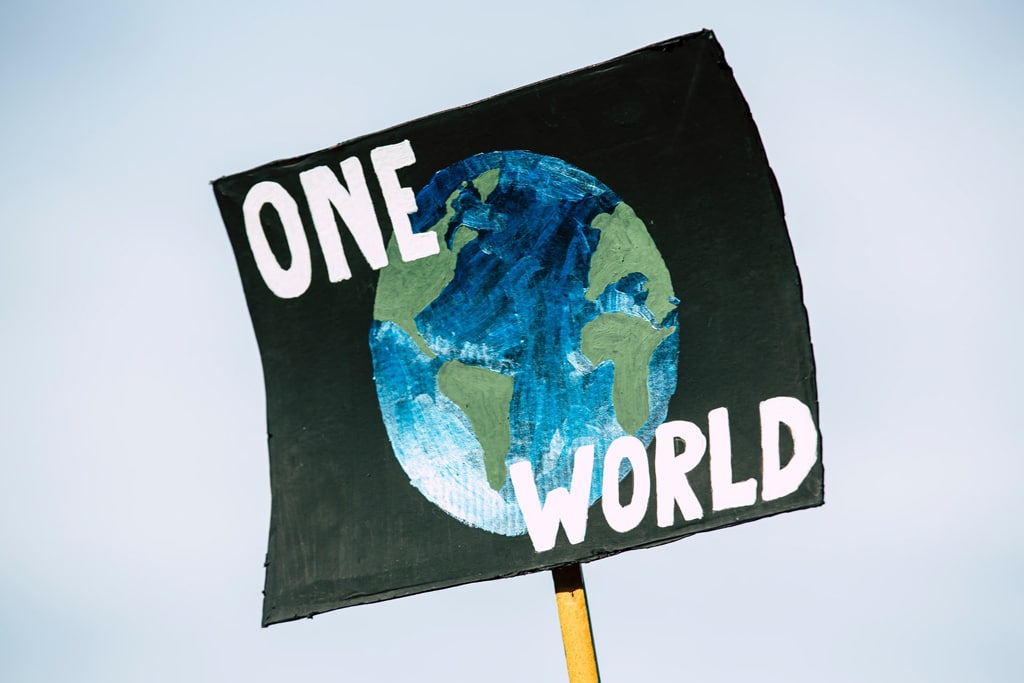
Although its origins go back earlier, the idea of global public, or communal, goods has sparked new interest and relevance with the pandemic, especially in the context of vaccines, but also given the new impetus aimed at restoring the environment and securing a fairer global taxation system for large corporations. The concept has taken on increasing importance in international politics, aided by UN agencies, the World Bank, the International Monetary Fund, the OECD and various NGOs. In this context, the G7 gathering in Cornwall could have been the summit of the new global goods (with considerable input from US rivalry with China). But as well as this dimension there is also a need to address public evils, which are on the increase and also require global cooperation if they are to be overcome, such as cyber-attacks involving ransomware, which are capable of paralysing both public and private services.
The concept of public or communal good referred to here is in the economic rather than the legal sense, as used by the Nobel Prize-winner, Elinor Ostrom. From this perspective, global public goods, referred to as such even if they are supplied by private companies, satisfy in simplified terms three characteristics: they are ‘non-rivalrous’, in other words what one individual consumes does not limit consumption by others; they are non-excludable, as it is virtually impossible to prevent anyone from consuming them; and they are available, more or less, throughout the world. Clean air, the environment, peace and security and even rights of property and knowledge have usually been classified as global public goods, or goods that may also have a merely national dimension. In any event, they are located in communal global spaces.
The number and awareness of these global public goods have increased in recent years. These days they require both local (national) and global management. New examples of such goods now include vaccines, and not only against COVID-19 given that the new RNA-messenger techniques have opened up new possibilities in the fight against other viruses and diseases. The same applies to taxes, especially in times that require tax-raising to fund the public expenditure caused by measures to offset the impact of the pandemic. The G7 agreement to introduce a fiscal harmonisation of corporation tax of at least 15% on large tech firms, and collection in the country where the service is rendered, not where the headquarters are located, is a step forwards in this direction. It awaits the approval of the G20 and the OECD, however, and the EU itself, where the agreement could help to overcome fiscal disputes between member states, particularly Ireland, and internally, between the autonomous regions of a country such as Spain. There has also been a call for exceptions (such as the one London wants for financial services), and it remains to be seen how it will affect developing economies.
Elsewhere I have argued that digitalisation and connectivity should be viewed as a common good, owing to what they have come to mean during the pandemic. The Internet is certainly a public good, as became evident when it suffered a partial and temporary outage on 8 June.
But at the same time global public or communal ills have emerged, which also satisfy the aforementioned –albeit modified– conditions, but for which national solutions do not suffice, requiring instead general or at least widespread cooperation. Growing inequality, that motor of insecurity and polarisation in societies, may be one of them. Jihadist terrorism, whose roots go back earlier but has left its mark on the first decades and is set to continue marking subsequent decades of the 21st century, is another. Disinformation is another.
Although in reality it started with the industrial revolution and urbanisation, unwanted loneliness (as opposed to being alone, or desired solitude, which is inseparable from being human) used to be above all an evil of Western societies. Now it is a general evil, from which no country is immune, a global evil of this century as Noreena Hertz argues in The Lonely Century: How to Restore Human Connection in a World that’s Pulling Apart; ‘we are in the midst of a global loneliness crisis’, she claims.
One of the new evils consists of cyber-attacks using what is known as ransomware, whereby data and computer systems are only restored on receipt of money to unblock them, something that is proliferating. A notable recent case involved the disruption of the Colonial Pipeline, which transports crude oil from the central US to the east coast, and for which a US$4 million payment was demanded (although the intelligence services are said to have recovered more than half). The largest meat processor in the world, the Brazilian company JBS, with operations in a number of countries, also fell victim to such an attack and was obliged to suspend processing at nine of its plants. During 2020, in the midst of the pandemic, there were various such attacks against health services and hospitals in the US and Europe, and recently the Japanese supplier of medical material, Fujifilm, was on the receiving end of this type of attack. The EU Agency for Cybersecurity (ENISA) has reported that there were 304 attacks in 2020 –many involving ransomware– against “critical sectors” in the EU, a twofold increase on the previous year. Spain has not been immune. In March 2021 the Spanish National Social Security Institute (INSS) fell victim to a ransomware cyber-attack that forced the State Public Employment Service (SEPE) to suspend its services in 800 offices for various days.
The Director of the FBI, Christopher A. Wray, has likened the threat of ransomware to the September 11 terrorist attack in 2001. His agents are analysing over a hundred software variants of this type, with the attacks tending to emanate from Russia, he contends (this global evil seems not to affect everyone equally). The US Department of Justice has set up a new working group to tackle these threats. There is already talk of a ‘cyber pandemic’.
These threats require not only defensive measures but also close international cooperation of a new kind, in part public-private, in order to combat attacks that grew by 150% in 2020, with a 300% increase in the ransoms demanded, according to Group-IB, a security company. Another firm, Sophos, puts the average cost of these attacks (insurance, ransom payment, clean-up and business losses) at US$761,106 in 2020, a figure that leapt to US$1.85 million in 2021. The arrest in various countries of a number of criminal gangs thanks to an entrapment app planted in their midst by the FBI is an example of a new dimension in this fight.
New instruments and methods are required, and new global governance, for the new global public goods and evils. The G7 and G20 can debate and lend impetus, but not decide.


